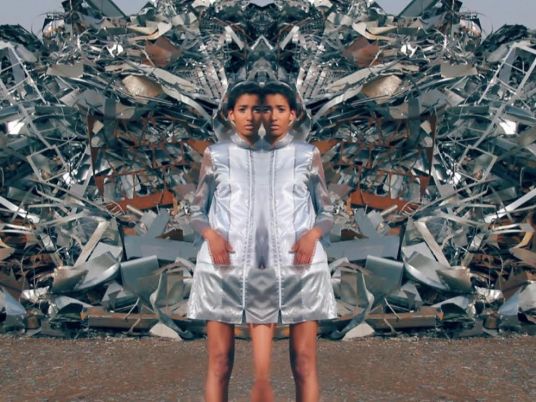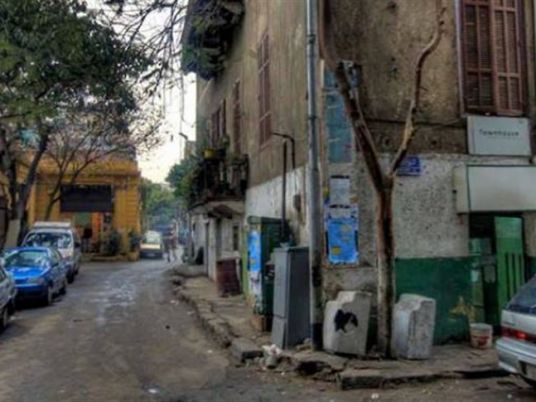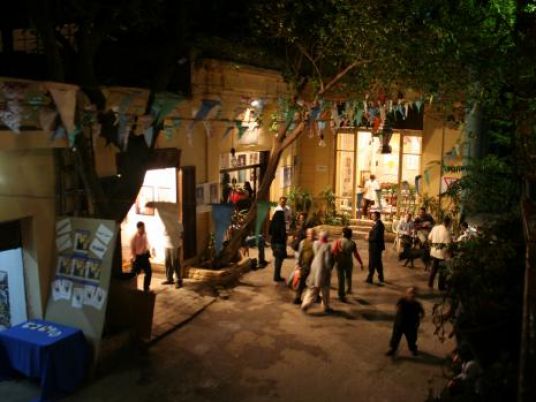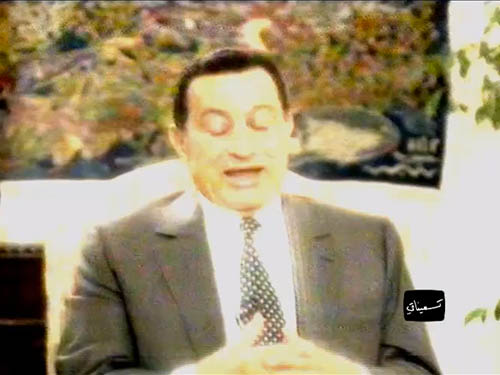Council of Citizens, a film by Danish artist Soren Thilo Funder, is currently on view at the Rawabet Theater space at Townhouse Gallery of Contemporary Art in downtown Cairo. The 12-minute film is a dark rendering of the rituals involved in participating in civil society.
Council of Citizens is a pointed critique of contemporary politics and it was chosen for exhibit in part to encourage critical political dialogue as Egyptians restructure their political system. The film portrays a “circle commune” acting out familiar modes of political action and interaction. The gestures are removed from familiar context and reinterpreted as occult ritual, empty and strange.
Soren Thilo Funder works primarily as an audio-video artist and has exhibited his works in international galleries, film festivals, museum exhibitions and public space exhibitions. In 2010 he was an artist-in-residence at Townhouse Gallery, but the work on display currently was filmed prior to his residency, in Copenhagen, where the artist is based. It is the first time his work has been shown at Townhouse.
His film opens with shafts of light streaming into a large, empty barn, with a quiet electronic soundtrack bleeping in the background. The setting of the film, actually a horse riding arena on the outskirts of Copenhangen, is fittingly mirrored by the Rawabet space, also barn-like with cracks in the ceiling that allow in slivers of sun. Funder says of the location, “The room interested me as a "border space" between the urban and the rural — the arena is inside the city but still referring back to the rural.”
The film goes through the course of what appears to be an obscure tribal ritual. Members of the council, arranged in a semicircle, stare blankly forward, never directly at the camera, their gazes tinged with sadness. They raise their arms as if voting and take turns using a long, thick wooden stick to draw circles in the dirt, making arbitrary and contradictory borders.
Every element of the film feels intentional, and it is. The result is a fascinating piece of cinema, beautifully filmed, that begs scrutiny from the viewer. Though every action is loaded with symbolism, the symbols are transformed and unfamiliar.
While it is clear in the first half of the film that each action is a parallel to a specific political action, the latter half of the film, in which Funder incorporates elements of specific subcultures, is less explicit. This section incorporates a particular style of dance, called “Hard Style,” and the soundtrack comes to the fore, imbuing the film with a sudden burst of frenetic energy. Funder worked with underground musicians in Copenhagen to create the soundtrack.
“The music was created in a constant dialogue between myself and [the musician] ELOQ, but for the part of the music that plays during the dancing act, ELOQ had completely free hands," he said. "I wanted that whole part of the work to be the next generation’s own image.”
The dancing is the one gesture in the film that comes across as essential and full of life. The dancers fall into contrast with the Council of Citizens, who hop up and down around them absurdly, as if caught stuck in the first moments of an exercise routine.
Funder’s film is not an optimistic interpretation of the functions of contemporary politics. In his hands, actions fundamental to the functioning of civil society — voting, drawing borders, public statement — are suddenly strange and vaguely disturbing. The people that perform these actions are distant automatons, making gestures that obstruct, rather than facilitate, meaningful interactions with each other. But in the presence of the young dancers, Funder includes some hope for the future, however unclear its form. He points to the potential for, as he said, “a more free flowing exchange of rituals in the collective and participatory flow of underground culture and political movement.”
While Townhouse had been discussing the possibility of showing a video by Funder for some time after his residency, this film was chosen specifically to contribute to political dialogue in Egypt after the overthrow of the Mubarak regime.
According to Dina Kafafi, PR manager for Townhouse, “Right now we are moving toward people [in Egypt] becoming more aware of the procedures of voting and having a civil society. The video frames these activities. It is interesting because we are stepping into this just now, while other countries are working to change it.”
While Council of Citizens portrays a body politic grown stale and dysfunctional, its selection for exhibit is a reminder of the continuous and active political dialogue taking place today in Cairo, in which Cairo’s art institutions are fully participating. Kafafi said of Townhouse’s current and recent exhibitions, “Everything planned before the revolution was rethought and planned in reaction to the revolution.” She mentioned the performance opening this week at Townhouse, “Force Majeure,” as one project whose shape had been changed after the events in Cairo of the past several months.
Council of Citizens will be on display at the Rawabet Theater at Townhouse Gallery of Contemporary
Art until 18 May. The space is open Saturday through Wednesday, 10 am to 2 pm and 6 pm and 9 pm.




